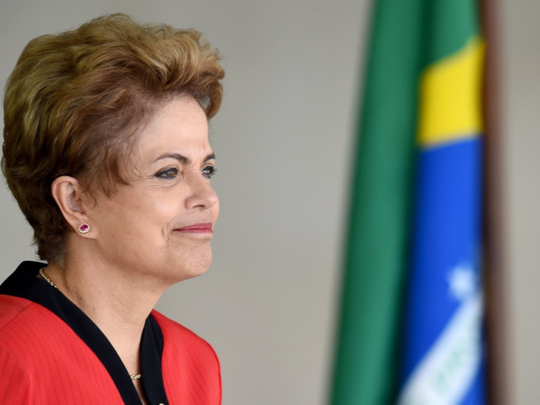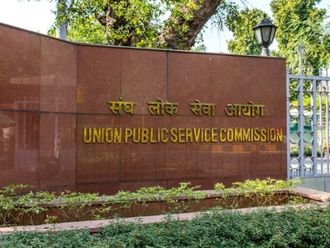
Brazil may face its second presidential impeachment in less than a year, thanks to revelations of the veritable epidemic of corruption infecting so many among its political and economic elite. Elsewhere across Latin America, a similar contagion is spreading.
The arrests in Italy and Guatemala of two former state governors from Mexico’s ruling Institutional Revolutionary Party (PRI) are the latest blows to that country’s prolonged progression towards full democracy.
In Chile, a country perceived as among the least corrupt in the region, the socialist government of President Michelle Bachelet has seen its popularity plummet from a mix of mismanagement and a long string of scandals involving her relatives, banks, parties, businessmen and officials. In Argentina, the former president Cristina Fernandez de Kirchner faces prosecution on charges of fraudulently conceding public works.
But it is in Brazil where corruption investigations are pushing the country towards political crisis and a free fall in the stock market.
The last chapter of the so-called “Java Lato” (Car Wash) investigations into Latin America’s biggest bribery scandal, opened last December with the $3.5 billion (Dh12.87 billion) fine paid in New York by the construction firm Odebrecht to help settle the case. This is yet another case of illegal works concessions and underhand funding for politicians. It brought down the last, leftist president Dilma Rousseff, has touched her predecessor Luis Inacio Lula da Silva, and is now threatening the political survival of Dilma’s successor, President Michel Temer. But Odebrecht is thought to have corrupted politicians far beyond Brazil, and revelations are hurting the world’s perception of the entire region and its rulers, and harming business.
Less competitive
And while it is difficult to measure the exact cost of corruption, indices clearly show that countries perceived as corrupt become less competitive. In one example, Mexico’s Central Bank estimated corruption to have cost the country 9 per cent of its gross domestic product in 2015.
The revelation of big corruption cases from 2015 and especially through 2016 shows a growing problem, and yet it could ultimately turn out to be good news. That is how Transparency International, the World Economic Forum and World Bank see it, arguing that it is not so much corruption as the fight against it that is growing. With the exception of the Panama Papers, recent revelations in the region have been the product of actions by national judicial ministries and supervisory agencies, while their international scope indicates greater cooperation between regulatory and police agencies regionally.
Studies also show that increasing corruption-related arrests and trials have an inverse relationship with corruption levels. That is, countries with more arrests see their corruption fall — while the most corrupt countries continue to have very few arrests or prosecution for such crimes.
There is also the deterrent effect: The Odebrecht scandal will make it difficult for other multinationals to try similar tactics, while Marcelo Odebrecht’s imprisonment shows that money can’t buy impunity. Brazilian democracy is working in spite of defects, the judiciary is independent, as is its press, free to expose murky affairs, come what may.
Lack of press freedoms
And there have certainly been consequences. The region’s biggest bribery mesh risks snaring not just Temer, but also Alejandro Toledo, the former Peruvian president who used to champion clean government, and could even touch Colombia’s President Juan Manuel Santos, a Nobel Peace laureate. It may also show the path to move forward. The first thing to do is to fortify institutions, assure the separation of powers and take press freedoms very seriously. The revelations in Brazil could not have emerged in Venezuela, where there is no press freedom and where President Nicolas Maduro has the judiciary under his control.
Countries must also establish or update corruption laws, like Mexico’s 2012 Law Against Money Laundering and Brazil’s Anti-Bribery Law, in force since 2014. Legislation must increase penalties for corruption, and protect whistle-blowers. This may be hard to do, but evidence shows that revelations work, in governments as in companies.
It is a difficult task at all levels, but we believe the situation is actually improving. Justice is imposing itself and rulers and businessmen should be well aware of that fact the next time they feel tempted to break the rules, evade their taxes or jump the queue with a bribe.
Still, none of this solves Brazil’s immediate problem of finding a credible government leader. We believe that the best scenario, if Temer resigns, is for an acting president to call general elections within the 30 following days as the law requires. That would open the way for the rise of new faces that could, in every sense, give the country a clean start.
— Worldcrunch, 2017, in association with America Economia/New York Times News Service








